Abstract
Guard cells of several species, but predominantly Commelina communis, were impaled by micropipette electrodes and potential differences measured that occurred between cell compartments and the flowing bathing medium. The wall developed a Donnan potential that was between −60 and −70 millivolt in 30 millimolar KCl at pH 7. The density of the fixed charges ranged from 0.3 to 0.5 molar; its dependence on pH was almost identical with the titration curve of authentic polygalacturonic acid. The vacuolar potential of guard cells of Commelina communis L., Zea mays L., Nicotiana glauca Graham, Allium cepa L., and Vicia faba L. was between −40 and −50 millivolt in 30 millimolar KCl when stomata were open and about −30 millivolt when stomata were closed. The vacuolar potential of guard cells of C. communis was almost linearly related to stomatal aperture and responded to changes in the ionic strength in the bathing medium in a Nernstian manner. No specificity for any alkali ion (except Li+), ammonium, or choline appeared. Lithium caused hyperpolarization. Calcium in concentrations between 1 and 100 millimolar in the medium led to stomatal closure, also caused hyperpolarization, and triggered transient oscillations in the intracellular potential. Gradients in the electrical potential existed across stomatal complexes with open pores. When stomata closed, these gradients almost disappeared or slightly reverted; all epidermal cells were then at potentials near −30 millivolt in 30 millimolar KCl.
Full text
PDF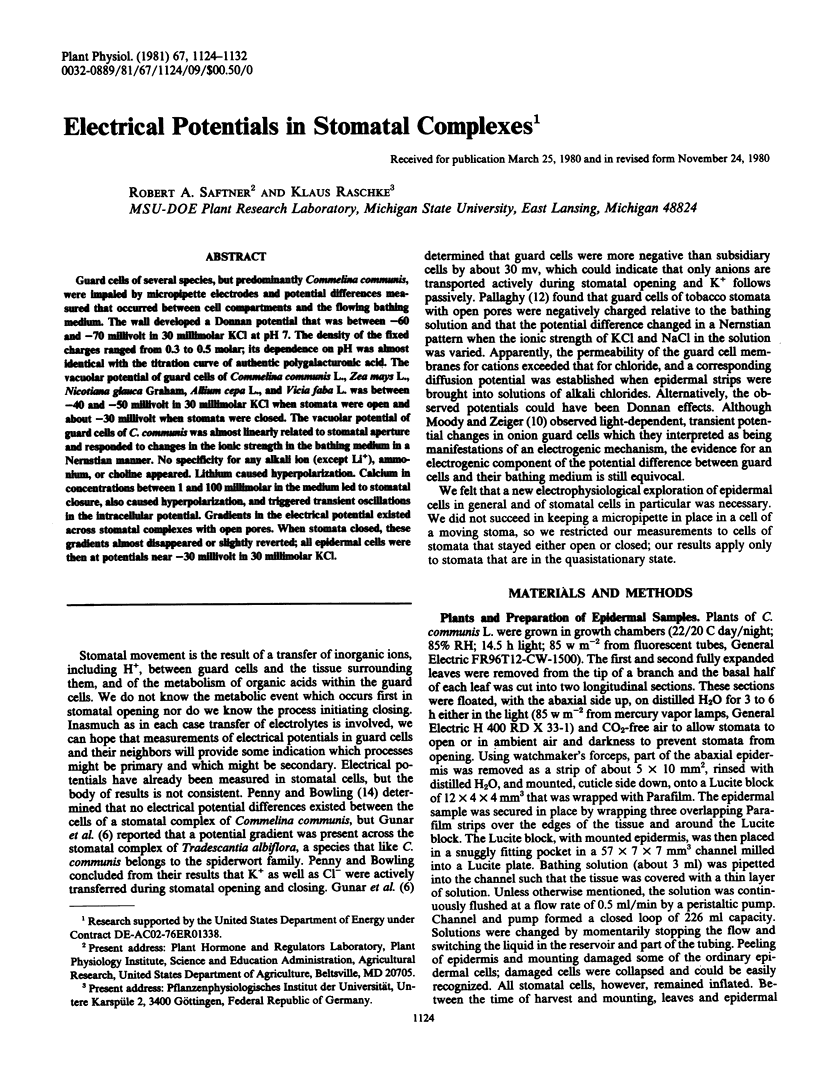
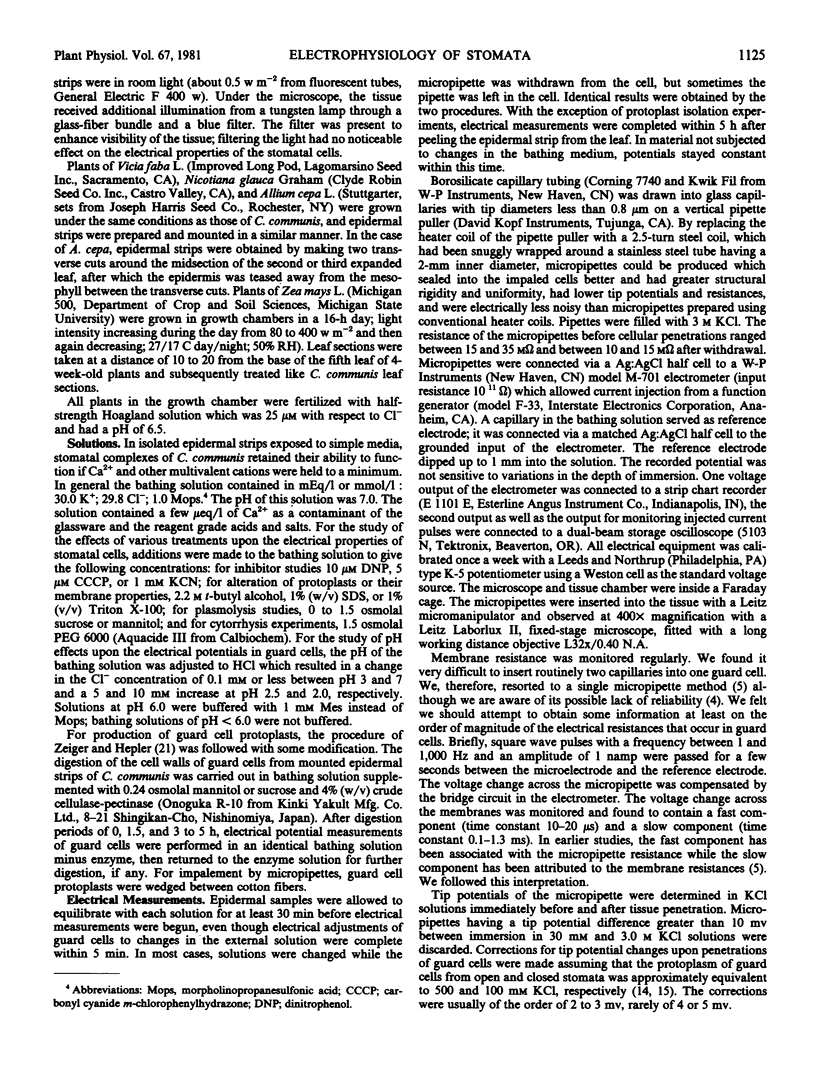
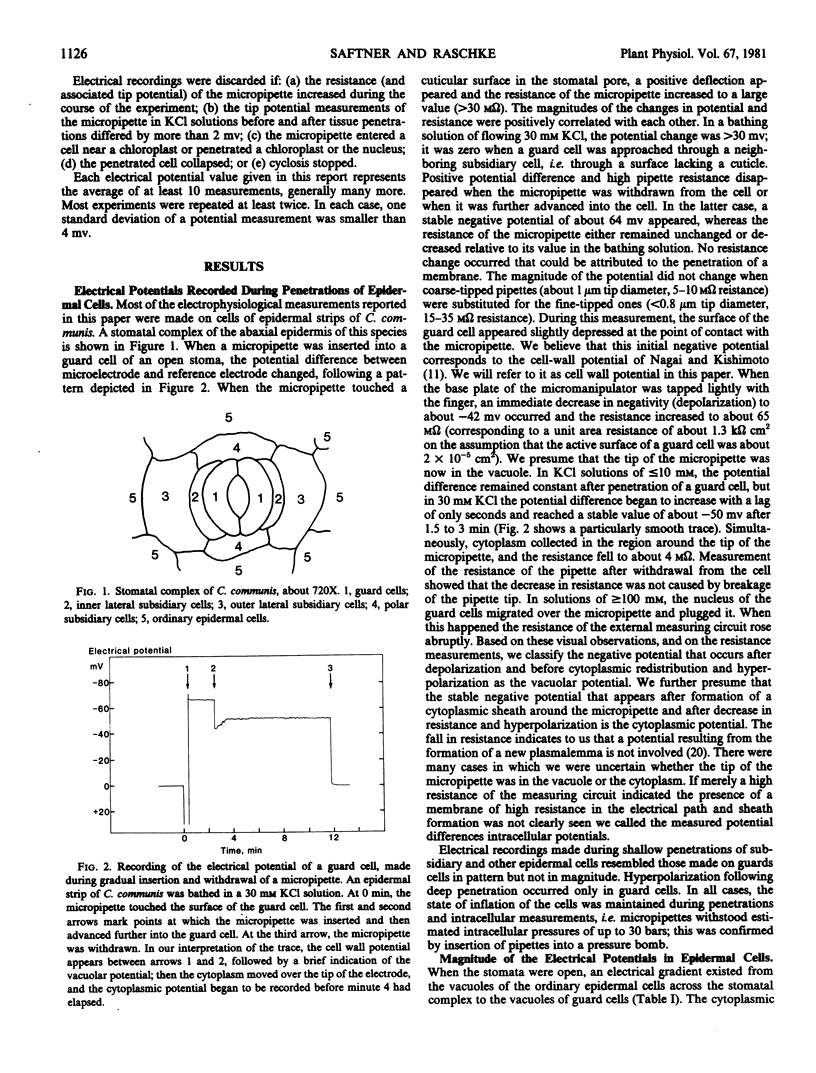
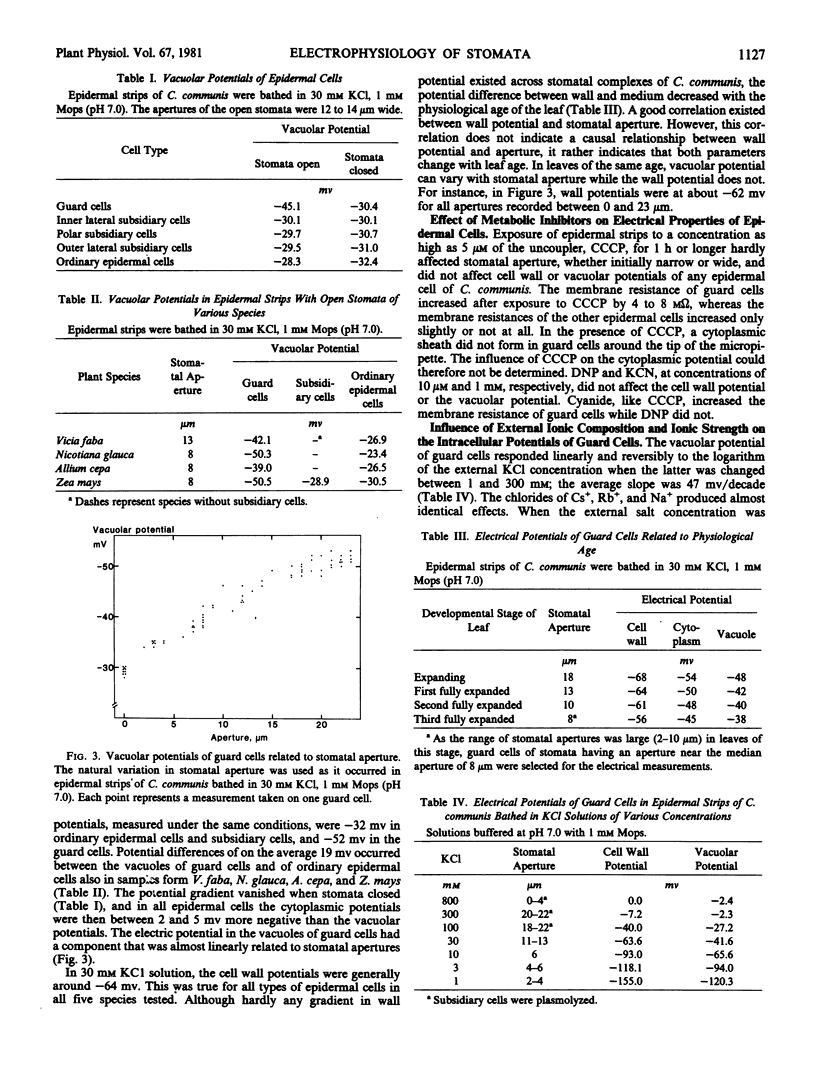
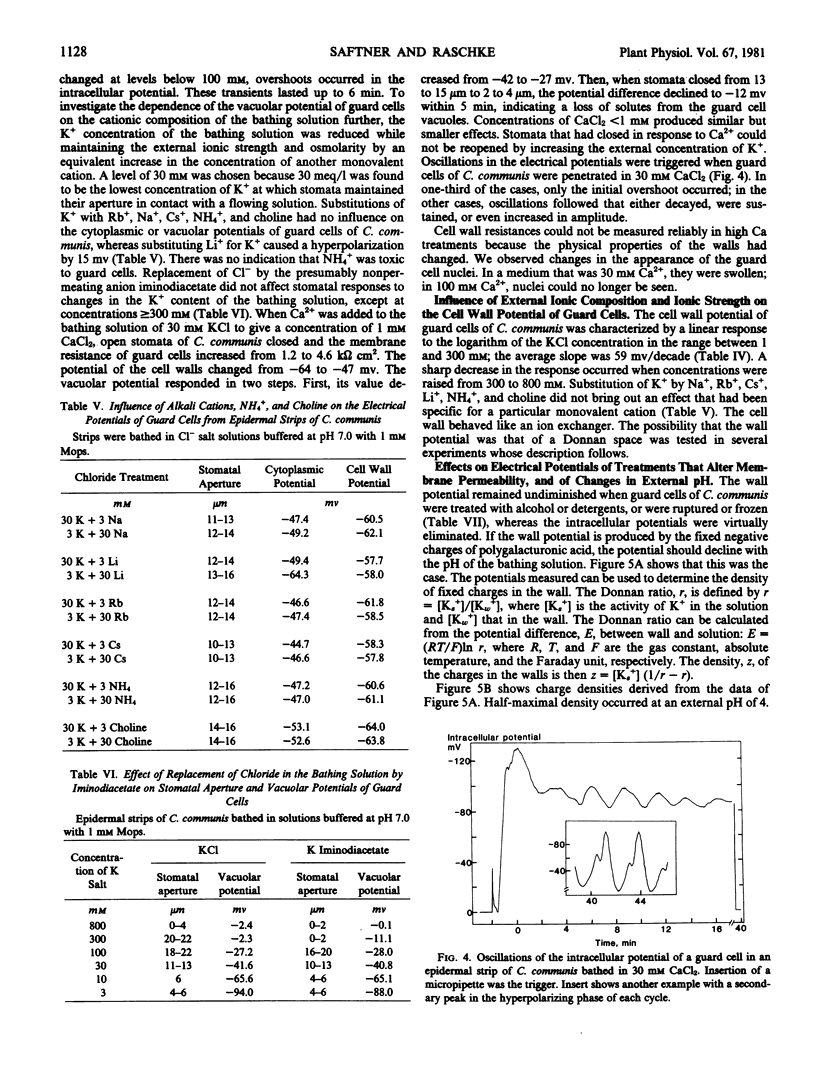
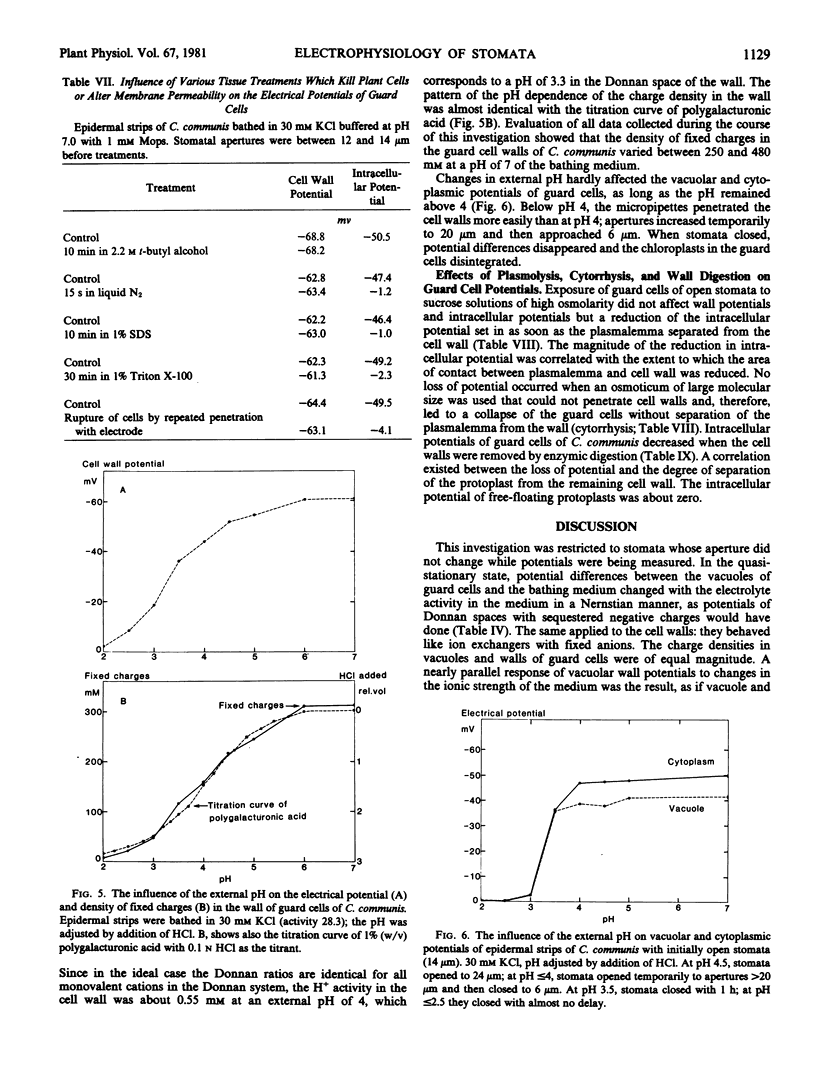
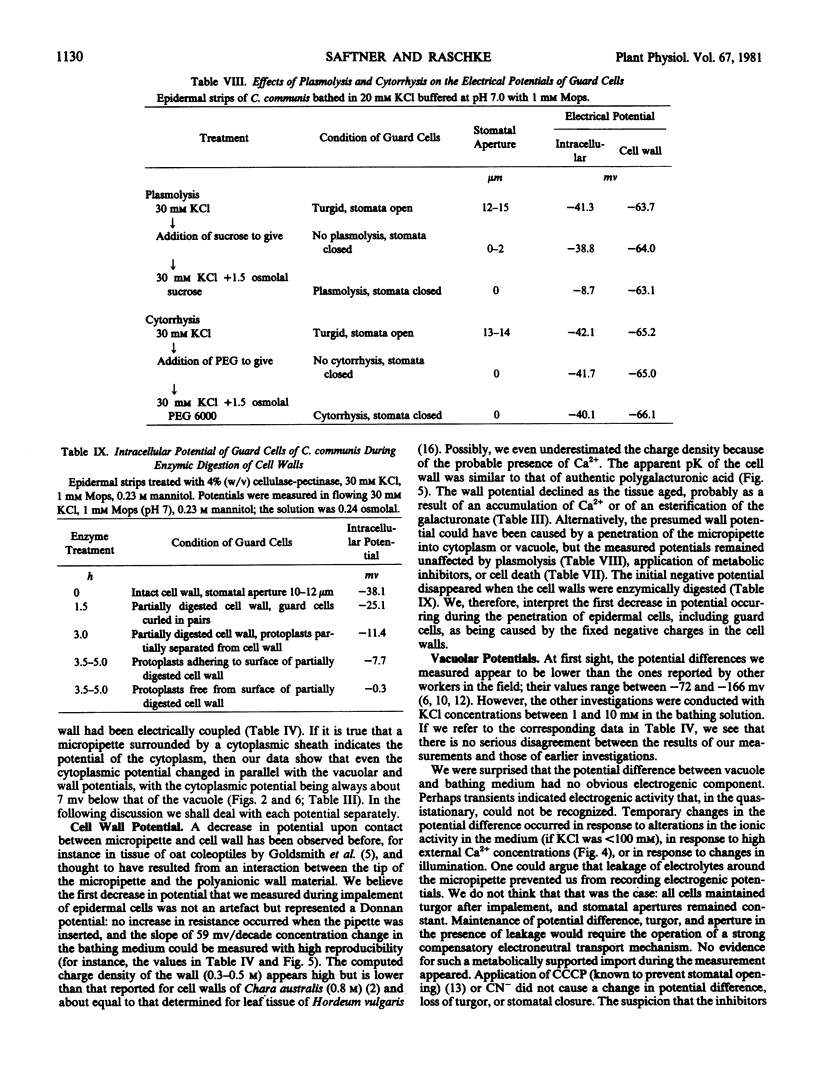
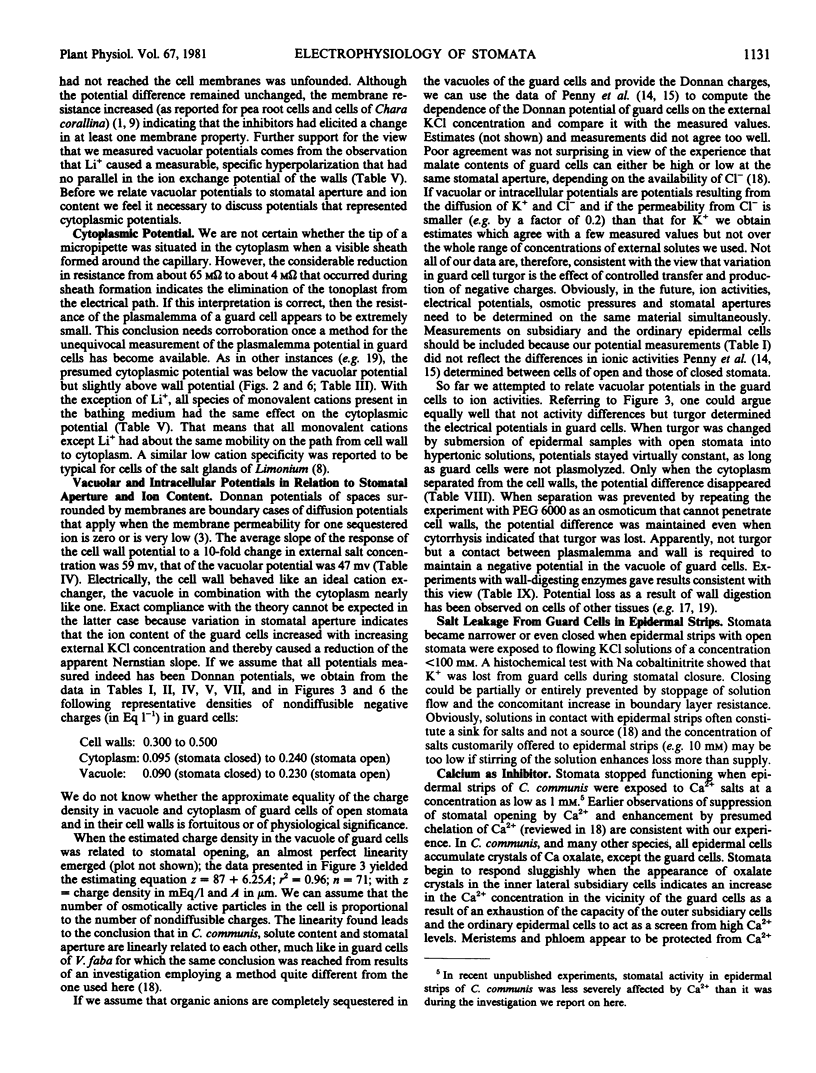
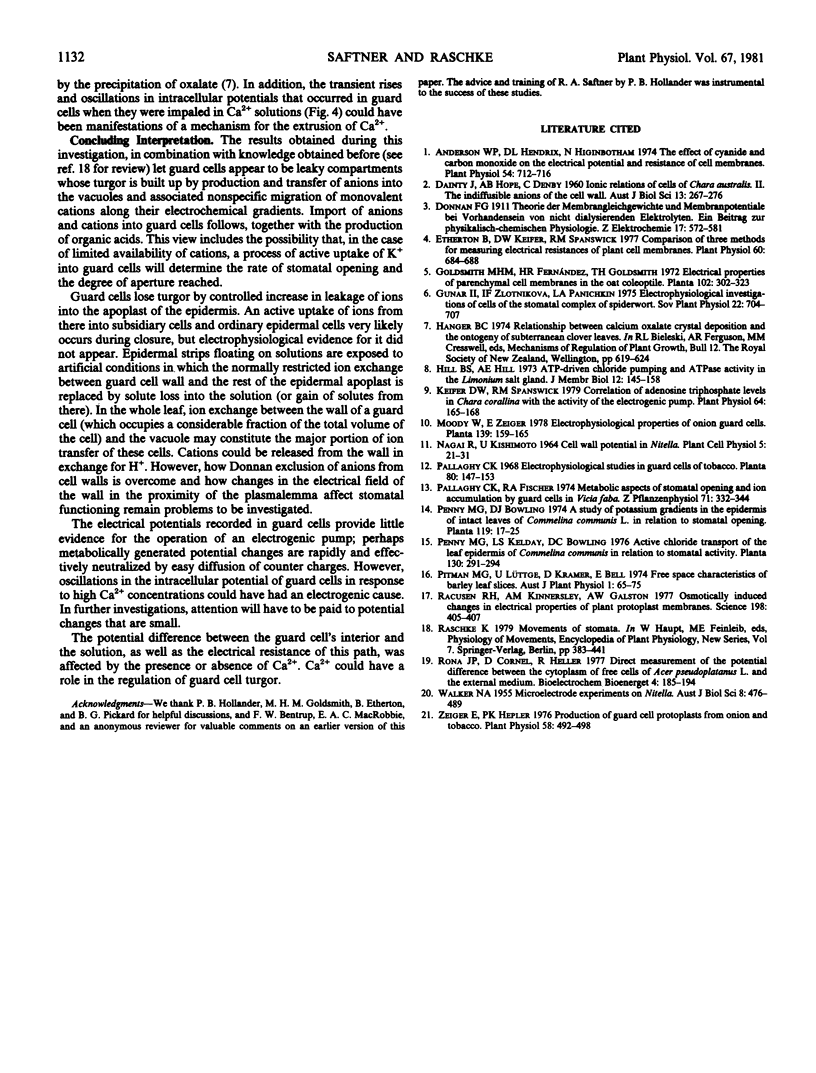
Selected References
These references are in PubMed. This may not be the complete list of references from this article.
- Anderson W. P., Hendrix D. L., Higinbotham N. The effect of cyanide and carbon monoxide on the electrical potential and resistance of cell membranes. Plant Physiol. 1974 Nov;54(5):712–716. doi: 10.1104/pp.54.5.712. [DOI] [PMC free article] [PubMed] [Google Scholar]
- Keifer D. W., Spanswick R. M. Correlation of Adenosine Triphosphate Levels in Chara corallina with the Activity of the Electrogenic Pump. Plant Physiol. 1979 Aug;64(2):165–168. doi: 10.1104/pp.64.2.165. [DOI] [PMC free article] [PubMed] [Google Scholar]
- Racusen R. H., Kinnersley A. M., Galston A. W. Osmotically induced changes in electrical properties of plant protoplast membranes. Science. 1977 Oct 28;198(4315):405–407. doi: 10.1126/science.198.4315.405. [DOI] [PubMed] [Google Scholar]
- Zeiger E., Hepler P. K. Production of guard cell protoplasts from onion and tobacco. Plant Physiol. 1976 Oct;58(4):492–498. doi: 10.1104/pp.58.4.492. [DOI] [PMC free article] [PubMed] [Google Scholar]


